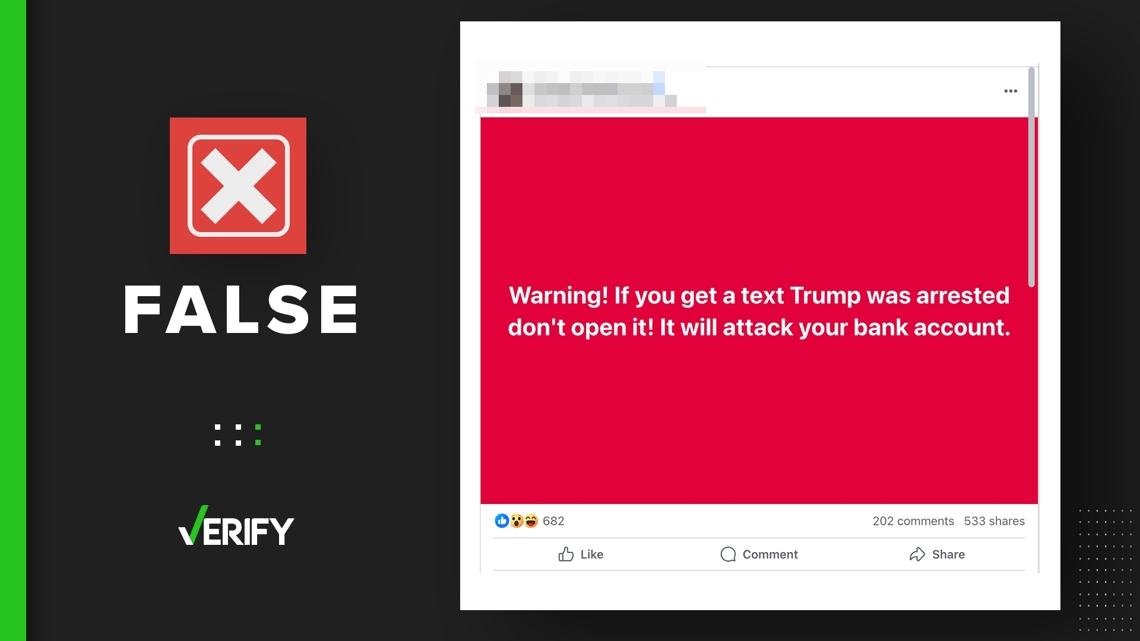
Messages that warn of hackers accessing your bank account if you open a text are likely “virus hoaxes.” A variation of this one has been online since 2021.
Several readers emailed and texted VERIFY asking about social media posts that warn people that opening a text message about President-elect Donald Trump being arrested could give hackers access to your bank account.
“Warning! If you get a text Trump was arrested don’t open it! It will attack your bank account,” a Facebook post with more than 500 shares says. Posts with nearly identical text have been shared on Threads dozens of times.
THE QUESTION
Are the warnings about the “Trump arrest” text message virus legitimate?
THE SOURCES
THE ANSWER
No, the warnings about the “Trump arrest” text message virus aren’t legitimate. Posts with similar text date back to at least 2021, and VERIFY was unable to find any reports indicating that any virus or hack ever existed.
WHAT WE FOUND
There is no evidence to support warnings that opening a text about Trump’s arrest can hack your bank account. Similar social media posts with this warning have circulated for years in various forms.
The Federal Communications Commission (FCC), which tracks common scams and hacks, has no reports on its website of scams of this nature.
Social media posts with identical text are known as copypasta, which is internet slang for a block of text that gets copied and pasted repeatedly. VERIFY found this particular post has been shared online for years.
In 2021, VERIFY partner station KHOU reported about online warnings that read, “Don’t open anything on your phone or computer that says Trump arrested. It’s a virus. Pass it on.” John Shier, senior security advisor and research scientist for Sophos, a cybersecurity company, told KHOU these types of messages are known as “virus hoaxes.”
“A lot of these are just basically part of ad networks. And the more people that see them, the more people that potentially click on them, the more revenues can be made by the scammers,” Shier said.
Marketing company TechTarget says “virus hoax” text messages are typically accompanied by a sensational claim – in this case like the false claim Trump has been arrested. Southern Methodist University’s Office of Information Technology warns virus hoaxes should not be simply considered a mere annoyance because they “may lead some users to routinely ignore all virus warning messages, leaving them vulnerable to a genuine, destructive virus.”
As a general rule of thumb, people should avoid opening or responding to text messages from an unknown sender or clicking on any links to an outside source. Several mobile service providers allow you to block unwanted messages by forwarding them to 7726 (or “SPAM”).
VERIFY reached out to the FCC for additional information but did not hear back at the time of publication.









More Stories
New fund can help reimburse car theft victims for tow fees
‘Dastardly deeds’: Family of Malcolm X sues US agencies over assassination
Three Douglas County students selected to march in Macy’s Thanksgiving Day Parade